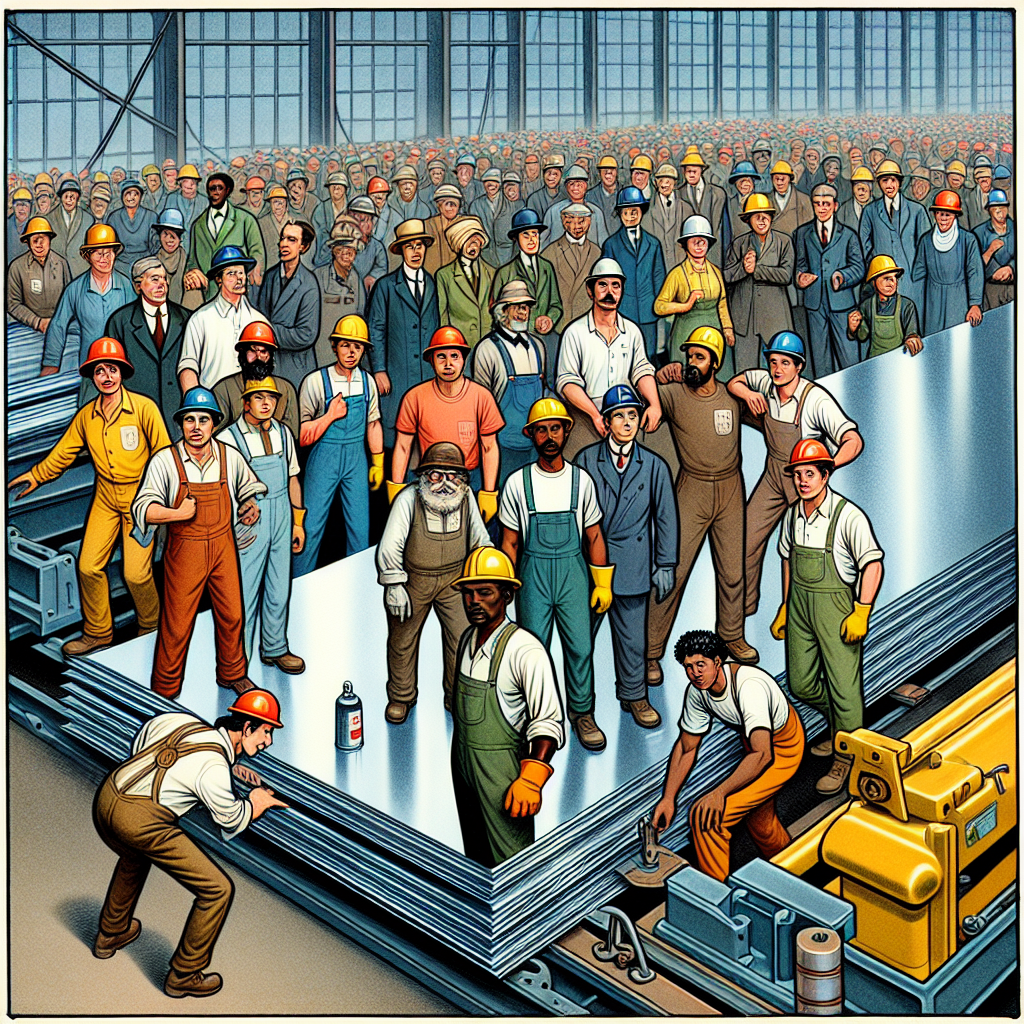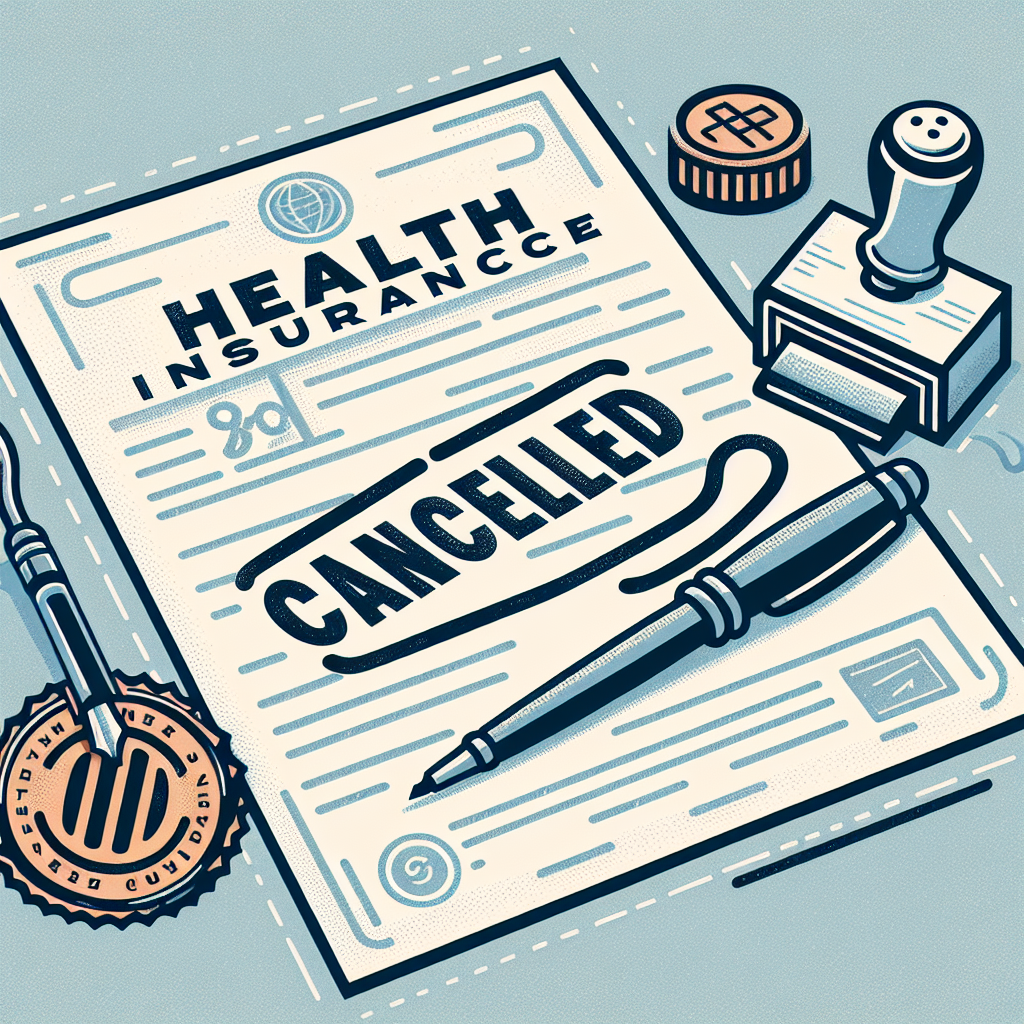Filed under Health Insurance on
Health Insurance Options for Sheet Metal Workers

The construction and manufacturing industries are essential pillars of the economy, employing a diverse workforce with specialized skills. Among these workers are sheet metal workers, whose expertise is crucial in HVAC, roofing, and various installation projects. However, as with many trades, the physical demands and risks involved necessitate comprehensive health insurance. In this article, we explore health insurance options for sheet metal workers, aiming to provide clarity and guidance for those navigating this critical aspect of their professional lives.
Why Sheet Metal Workers Need Specialized Health Insurance
Sheet metal work is not only physically demanding but also potentially hazardous. Whether working with heavy machinery, handling sharp materials, or being exposed to high levels of noise, the risk of injury is significant. This makes having the right health insurance essential for these workers to ensure they receive adequate medical care without incurring overwhelming financial burdens.
Moreover, given the nature of their work, many sheet metal workers are members of unions. While unions often provide some health coverage, understanding how this integrates with other insurance options is crucial.
Understanding Different Health Insurance Options
When it comes to health insurance, sheet metal workers have several options to consider. Here, we outline the primary avenues available:
1. Employer-Sponsored Health Insurance
Many sheet metal workers are employed by companies that offer group health insurance. This is often part of a benefits package that includes various levels of coverage, with the premium partially covered by the employer. This option is particularly beneficial since it provides comprehensive coverage at a reduced cost compared to individual plans.
For example, John, a sheet metal worker in a mid-sized HVAC company, appreciates the extensive network of doctors and specialists he can access through his employer’s plan, along with the predictable co-pays for medical services.
2. Union Health Plans
Union membership can be a valuable resource for sheet metal workers seeking health insurance. Many unions negotiate health plans specifically tailored to the needs of their members, which can include lower premiums and collective bargaining for better services.
Susan, a veteran sheet metal worker and union member, highlights how her union plan covers not only her medical expenses but also includes dental and vision care, providing comprehensive support for her family's health needs.
3. Individual Health Insurance Plans
For sheet metal workers who are self-employed or work for employers without health benefits, private insurance can be a viable alternative. Individual plans offer flexibility and can be customized to fit specific healthcare requirements. However, they often come with higher premiums and out-of-pocket costs.
Mike, an independent contractor, found that a high-deductible health plan paired with a Health Savings Account (HSA) allowed him to manage his healthcare expenses effectively while also benefiting from tax advantages.
4. Health Insurance Marketplace
The Affordable Care Act (ACA) established health insurance marketplaces that can be beneficial for sheet metal workers without employer coverage. These platforms provide access to a variety of plans, with potential subsidies based on income, making healthcare more affordable.
Rita, who transitioned from a full-time job to freelance work, used the marketplace to secure a plan that fit her new budget while ensuring she did not lose her essential health benefits.
5. COBRA Continuation Coverage
For those who have recently left a job with employer-provided health insurance, COBRA offers an opportunity to continue their existing coverage temporarily. Though more expensive, as individuals must pay the full premium, COBRA can be a crucial bridge for workers between jobs.
Tom, who was laid off during an industry downturn, relied on COBRA coverage to maintain his family’s health insurance until he secured new employment.
Factors to Consider When Choosing a Health Insurance Plan
Selecting the appropriate health insurance plan requires careful consideration of several factors, especially for sheet metal workers who face unique occupational risks. Here are some key considerations:
- Coverage Needs: Assess your specific medical needs, including any ongoing conditions or required medications. Ensure that these are covered under the new plan.
- Network Availability: Check if your preferred doctors and hospitals are in-network to minimize out-of-pocket costs.
- Cost vs. Benefit: Compare premiums, deductibles, co-pays, and out-of-pocket maximums to evaluate the overall cost-effectiveness of the plan.
- Family Considerations: If you have a family, ensure the plan provides adequate coverage for dependents, including pediatric care.
- Work-Related Risks: Given the inherent risks in sheet metal work, consider plans that offer strong emergency and injury care.
Practical Tips for Managing Health Insurance
Once you've selected a health insurance plan, effective management of healthcare expenses becomes vital. Here are some practical tips for sheet metal workers:
- Utilize Preventive Services: Many plans provide free preventive care services. Regular check-ups can catch potential health issues early, saving money and anguish later.
- Keep Track of Medical Expenses: Maintain records of your medical expenses and communications with the insurance provider to help manage payments and ensure accuracy.
- Understand Your Benefits: Take the time to thoroughly read your plan’s benefits documentation to understand what is covered and what is not.
- Take Advantage of HSAs or FSAs: Use Health Savings Accounts or Flexible Savings Accounts to set aside pre-tax dollars for medical expenses.
FAQs About Health Insurance for Sheet Metal Workers
1. What makes union health plans a good option for sheet metal workers?
Union health plans are often specifically tailored to meet the needs of their members, potentially offering lower premiums and comprehensive coverage, including dental and vision care. These plans benefit from the bargaining power of the union, which can secure better terms than individuals might achieve on their own.
2. Can I buy health insurance if I am an independent sheet metal contractor?
Yes, independent contractors can purchase individual health insurance policies through private insurers or through the Health Insurance Marketplace. These plans provide flexibility and can be customized, but it's important to compare different options to find one that fits your budget and coverage needs.
3. How do deductible and co-payments work in health insurance?
The deductible is the amount you pay out of pocket before your insurance starts to cover expenses. Co-payments are fixed amounts you pay for specific services, like doctor visits or prescriptions, even after meeting the deductible. It's important to consider these costs when choosing a plan, as they affect the overall affordability of healthcare.
4. Is COBRA a good option for maintaining health insurance coverage?
While COBRA can be expensive since you pay the full premium, it is a convenient option to maintain your current coverage if you transition between jobs. It offers protection from losing health coverage abruptly, which can be crucial for those with ongoing medical needs.
5. What should I do if my preferred doctor is out-of-network?
If your preferred doctor is out-of-network, you can either choose to pay the higher out-of-pocket costs to continue seeing them or select a new doctor within your plan’s network to minimize expenses. In some cases, you might appeal to your insurance company for exceptions, especially if the doctor specializes in a condition you are managing.
In conclusion, navigating health insurance options can be complex, particularly for sheet metal workers with specific occupational needs. By understanding the available options and considering both the coverage and costs, these workers can secure the right plan, ensuring peace of mind and financial security.





